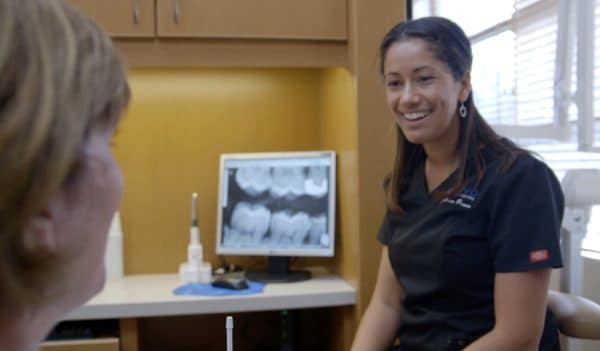April is dental health month and this year the focus is on Retirement! When you retire your mouth DOESN’T! Like a healthy garden, your teeth require regular maintenance especially as you age and we are here to assist you!!!
The dental care needs of each person are different and can change as you age. When preparing for your dental health retirement plan there are some common risk factors to consider:
DENTAL WORK DOESN’T LAST FOREVER
While dental work like fillings, crowns, bridges, and veneers can last a long time, they don’t last forever. Dental work can chip, crack, break, or simply wear out and requires regular examination to fix or replace the restoration early to avoid a bigger problem. The more dental work you have, the more vigilance is required to keep it in good shape. Getting your teeth ‘all fixed up’ before you retire means you should also consider a maintenance plan.
YOUR MOUTH IS CONNECTED TO YOUR BODY
A reduction in saliva production (or dry mouth) can dramatically increase your risk of tooth decay and gum disease. While dry mouth is common while we age, many medications can also cause a reduction in saliva.
Be sure to advise your dentist or hygienist if you start taking medication or have a change to your existing ones. Certain medical conditions, such as diabetes, can also directly affect your oral health as you age. Your dental visit also serves as an early warning for many medical conditions—including oral cancer—which may Be detected during an oral exam.
ARTHRITIS AND OTHER CONDITIONS AFFECTING DEXTERITY CAN IMPACT ORAL HYGIENE
The dexterity needed to thoroughly brush and floss your teeth daily can change quickly. Planning for regular professional dental cleanings with your dentist or hygienist will keep your gums and supporting bones healthy, and provide an opportunity to ask for advice on alternative cleaning tools to help clean your teeth at home.
YOUR MOUTH CHANGES, NO MATTER HOW MUCH YOU BRUSH AND FLOSS
Even the most vigilant brushing and flossing may not prevent all dental problems, for example recession. As gums recede, the softer root of the tooth is exposed to bacteria and sugar which can lead to root caries (root decay) a common condition for older patients. Daily flossing and brushing, along with regular professional cleanings will help reduce gum recession, but sometimes fillings in these areas are required.
SUGAR AND ACID IN FOOD AND DRINKS INCREASES YOUR RISK OF DECAY
While most people know that pop or candy is not good for their teeth, the ‘hidden’ sugar and acid in fruit juices, wine, flavoured coffees or water, and many healthy foods also impacts your dental health. Your diet and daily dental hygiene habits have a big influence on your dental care needs as you age.
YOUR GENETICS AND YOUR DENTAL HEALTH
Similar to your overall health, your genetics play a role in determining your risk of dental disease. Some people are more prone to tooth decay or gum disease. While your daily dental hygiene habits and diet play a significant role in determining your dental health, your genetics also impacts your current and future risk of dental disease.
THE CASE FOR FLUORIDE
Many patients don’t realize that BC drinking water does not contain fluoride. The absence of fluoride in our water, and use of non-fluoride dental care products can dramatically increase your risk of decay, especially if you consume sugary food and drinks, and don’t thoroughly brush and floss your teeth every day. Talk to your dentist about using fluoride in your daily dental care, and having fluoride applied during your dental visit.
INSURANCE PLAN OPTIONS IN RETIREMENT
Many insurance companies offer a range of extended health benefit plans for retirees with various amounts of dental care coverage. Deciding on a plan and how much dental coverage to purchase can be confusing. Your dental health history and the information above can help inform which plan is best for you and/or your spouse in retirement.

Do you have a retirement plan for your dental health?
We’d be happy to help you, give our office a call or ask us at your next dental appointment!

